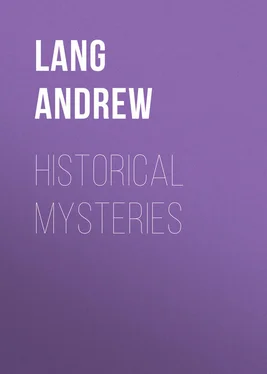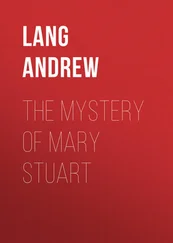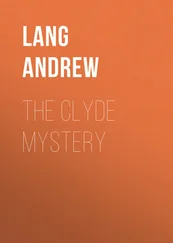Andrew Lang - Historical Mysteries
Здесь есть возможность читать онлайн «Andrew Lang - Historical Mysteries» — ознакомительный отрывок электронной книги совершенно бесплатно, а после прочтения отрывка купить полную версию. В некоторых случаях можно слушать аудио, скачать через торрент в формате fb2 и присутствует краткое содержание. Жанр: foreign_antique, foreign_prose, на английском языке. Описание произведения, (предисловие) а так же отзывы посетителей доступны на портале библиотеки ЛибКат.
- Название:Historical Mysteries
- Автор:
- Жанр:
- Год:неизвестен
- ISBN:нет данных
- Рейтинг книги:5 / 5. Голосов: 1
-
Избранное:Добавить в избранное
- Отзывы:
-
Ваша оценка:
- 100
- 1
- 2
- 3
- 4
- 5
Historical Mysteries: краткое содержание, описание и аннотация
Предлагаем к чтению аннотацию, описание, краткое содержание или предисловие (зависит от того, что написал сам автор книги «Historical Mysteries»). Если вы не нашли необходимую информацию о книге — напишите в комментариях, мы постараемся отыскать её.
Historical Mysteries — читать онлайн ознакомительный отрывок
Ниже представлен текст книги, разбитый по страницам. Система сохранения места последней прочитанной страницы, позволяет с удобством читать онлайн бесплатно книгу «Historical Mysteries», без необходимости каждый раз заново искать на чём Вы остановились. Поставьте закладку, и сможете в любой момент перейти на страницу, на которой закончили чтение.
Интервал:
Закладка:
All this occurred before Pratt left his house, which was on December 22, 'three days before New Christmas.' He then left Enfield for Cheshunt, and his evidence carries conviction.
In some other cases witnesses were very stupid – could not tell in what month Christmas fell. One witness, an old woman, made an error, confusing January 16 with January 23. A document on which she relied gave the later date.
If witnesses on either side were a year out in their reckoning, the discrepancies would be accountable; but Pratt, for example, could not forget when he left Enfield for Cheshunt, and Farmer Smith and Mrs. Howard could be under no such confusion of memory. It may be prejudice, but I rather prefer the Enfield evidence in some ways, as did Mr. Paget. In others, the Dorset evidence seems better.
Elizabeth had sworn to having asked a man to point out the way to London after she escaped into the lane beside Mrs. Wells's house. A man, Thomas Bennet, swore that on January 29, 1753, he met 'a miserable, poor wretch, about half-past four,' 'near the ten-mile stone,' in a lane. She asked her way to London; 'she said she was affrighted by the tanner's dog.' The tanner's house was about two hundred yards nearer London, and the prosecution made much of this, as if a dog, with plenty of leisure and a feud against tramps, could not move two hundred yards, or much more, if he were taking a walk abroad, to combat the object of his dislike. Bennet knew that the dog was the tanner's; probably he saw the dog when he met the wayfarer, and it does not follow that the wayfarer herself called it 'the tanner's dog.' Bennet fixed the date with precision. Four days later, hearing of the trouble at Mrs. Wells's, Bennet said, 'I will be hanged if I did not meet the young woman near this place and told her the way to London.' Mr. Davy could only combat Bennet by laying stress on the wayfarer's talking of 'the tanner's dog.' But the dog, at the moment of the meeting, was probably well in view. Bennet knew him, and Bennet was not asked, 'Did the woman call the dog "the tanner's dog," or do you say this of your own knowledge?' Moreover, the tannery was well in view, and the hound may have conspicuously started from that base of operations. Mr. Davy's reply was a quibble.
His closing speech merely took up the old line: Elizabeth was absent to conceal 'a misfortune'; her cunning mother was her accomplice. There was no proof of Elizabeth's unchastity; nay, she had an excellent character, 'but there is a time, gentlemen, when people begin to be wicked.' If engaged for the other side Mr. Davy would have placed his ' Nemo repente fuit turpissimus ' – no person of unblemished character wades straight into 'innocent blood,' to use his own phrase.
The Recorder summed up against Elizabeth. He steadily assumed that Nash was always right, and the neighbours always wrong, as to the girl's original story. He said nothing of Bennet; the tanner's dog had done for Bennet. He said that, if the Enfield witnesses were right, the Dorset witnesses were wilfully perjured. He did not add that, if the Dorset witnesses were right, the Enfield testifiers were perjured.
The jury brought in a verdict of 'Guilty of perjury, but not wilful and corrupt.' This was an acquittal, but, the Recorder refusing the verdict, they did what they were desired to do, and sentence was passed. Two jurors made affidavit that they never intended a conviction. The whole point had turned, in the minds of the jury, on a discrepancy as to when Elizabeth finished the water in the broken pitcher – on Wednesday, January 27, or on Friday, January 29. Both accounts could not be true. Here, then, was 'perjury,' thought the jury, but not 'wilful and corrupt,' not purposeful. But the jury had learned that 'the court was impatient;' they had already brought Elizabeth in guilty of perjury, by which they meant guilty of a casual discrepancy not unnatural in a person hovering between life and death. They thought that they could not go back on their 'Guilty,' and so they went all the way to 'corrupt and wilful perjury' – murder by false oath – and consistently added 'an earnest recommendation to mercy'!
By a majority of one out of seventeen judges, Elizabeth was banished for seven years to New England. She was accused in the Press of being an 'enthusiast,' but the Rev. William Reyner, who attended her in prison, publicly proclaimed her a good Churchwoman and a good girl (June 7, 1754). Elizabeth (June 24) stuck to her guns in a manifesto – she had not once 'knowingly deviated from the truth.'
Mr. Davy had promised the jury that when Elizabeth was once condemned all would come out – the whole secret. But though the most careful attempts were made to discover her whereabouts from January 1 to January 29, 1753, nothing was ever found out – a fact most easily explained by the hypothesis that she was where she said she was, at Mother Wells's.
As to Elizabeth's later fortunes, accounts differ, but she quite certainly married, in Connecticut, a Mr. Treat, a respectable yeoman, said to have been opulent. She died in Connecticut in June 1773, leaving a family.
In my opinion Elizabeth Canning was a victim of the common sense of the eighteenth century. She told a very strange tale, and common-sense holds that what is strange cannot be true. Yet something strange had undeniably occurred. It was very strange if Elizabeth on the night of January 1, retired to become a mother, of which there was no appearance, while of an amour even gossip could not furnish a hint. It was very strange if, having thus retired, she was robbed, starved, stripped and brought to death's door, bleeding and broken down. It was very strange that no vestige of evidence as to her real place of concealment could ever be discovered. It was amazingly strange that a girl, previously and afterwards of golden character, should in a moment aim by perjury at 'innocent blood.' But the eighteenth century, as represented by Mr. Davy, Mr. Willes, the barrister who fabled in court, and the Recorder, found none of these things one half so strange as Elizabeth Canning's story. Mr. Henry Fielding, who had some knowledge of human nature, was of the same opinion as the present candid inquirer. 'In this case,' writes the author of Tom Jones , 'one of the most simple girls I ever saw, if she be a wicked one, hath been too hard for me. I am firmly persuaded that Elizabeth Canning is a poor, honest, simple, innocent girl.'
Moi aussi , but – I would not have condemned the gipsy!
In this case the most perplexing thing of all is to be found in the conflicting unpublished affidavits sworn in March 1753, when memories as to the whereabouts of the gipsies were fresh. They form a great mass of papers in State Papers Domestic, at the Record Office. I owe to Mr. Courtney Kenny my knowledge of the two unpublished letters of Fielding to the Duke of Newcastle which follow:
'My Lord Duke, – I received an order from my Lord Chancellor immediately after the breaking up of the Council to lay before your Grace all the Affidavits I had taken since the Gipsy Trial which related to that Affair. I then told the Messenger that I had taken none, as indeed the fact is the Affidavits of which I gave my Lord Chancellor an Abstract having been all sworn before Justices of the Peace in the Neighbourhood of Endfield, and remain I believe in the Possession of an Attorney in the City.
'However in Consequence of the Commands with which your Grace was pleased to honour me yesterday, I sent my Clerk immediately to the Attorney to acquaint him with the Commands, which I doubt not he will instantly obey. This I did from my great Duty to your Grace, for I have long had no Concern in this Affair, nor have I seen any of the Parties lately unless once when I was desired to send for the Girl (Canning) to my House that a great number of Noblemen and Gentlemen might see her and ask her what Questions they pleased. I am, with the highest Duty,
Читать дальшеИнтервал:
Закладка:
Похожие книги на «Historical Mysteries»
Представляем Вашему вниманию похожие книги на «Historical Mysteries» списком для выбора. Мы отобрали схожую по названию и смыслу литературу в надежде предоставить читателям больше вариантов отыскать новые, интересные, ещё непрочитанные произведения.
Обсуждение, отзывы о книге «Historical Mysteries» и просто собственные мнения читателей. Оставьте ваши комментарии, напишите, что Вы думаете о произведении, его смысле или главных героях. Укажите что конкретно понравилось, а что нет, и почему Вы так считаете.












